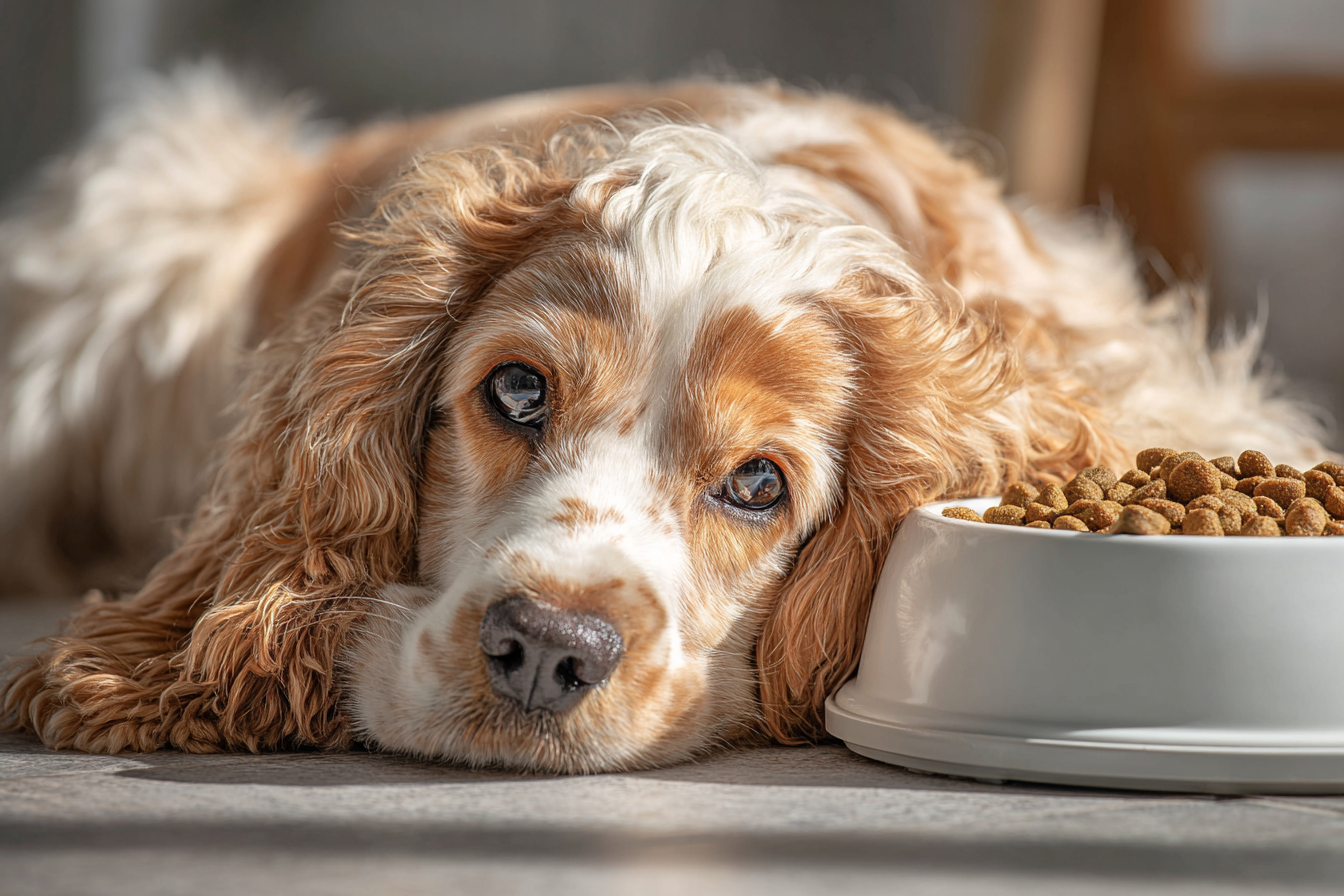Providing the right nutrition for your English Cocker Spaniel is essential to keep them happy, healthy, and full of energy. These lively and affectionate dogs have specific dietary needs that support their active lifestyle and maintain their luxurious coat. Whether you’re a new pet owner or looking to improve your dog’s diet, understanding their nutrition requirements is key to making informed feeding choices. Let’s explore what to feed your English Cocker Spaniel to help them thrive.
Nutritional Overview for Active Dogs
English Cocker Spaniels are moderately active dogs, requiring a balanced diet suited to their energy output and body composition. Their diet needs to include the right balance of proteins, fats, carbohydrates, vitamins, and minerals to support muscle maintenance, immune function, and overall vitality. High-quality animal proteins such as chicken, turkey, lamb, or fish provide essential amino acids for muscle health and tissue repair. Meanwhile, fats supply concentrated energy and contribute to a shiny, healthy coat.
Carbohydrates from wholesome sources like sweet potatoes, brown rice, or oats supply slow-release energy to fuel their playful antics. Additionally, a diet rich in antioxidants and essential fatty acids supports cognitive function and reduces inflammation, which is especially important as your dog ages. Supplementing with fresh vegetables and fruits can also offer valuable nutrients and fiber, supporting digestion and gut health.
Recommended Daily Calorie Intake
The calorie needs of an English Cocker Spaniel depend on their age, weight, activity level, and metabolism. On average, an adult English Cocker Spaniel weighing between 24 to 30 pounds requires about 900 to 1,200 calories per day. However, more active dogs or working spaniels may need additional calories to sustain their energy.
It’s crucial to monitor your dog’s weight and adjust their food portions accordingly. Overfeeding can lead to obesity, which puts extra strain on their joints and can shorten their lifespan. Conversely, underfeeding means your dog may lack the nutrients necessary for optimum health. Ideally, split your dog’s daily calorie intake into two meals, allowing for better digestion and steady energy throughout the day.
Key Nutrients for Coat and Joint Health
English Cocker Spaniels are known for their beautiful, silky coats, which require specific nutrients to stay healthy and vibrant. Omega-3 and omega-6 fatty acids, commonly found in fish oil and flaxseed, are essential for maintaining skin elasticity and reducing itchiness and dryness. Incorporating these fatty acids into your dog’s diet can help keep their coat shiny and smooth.
Joint health is equally important, especially since Cockers can be prone to hip dysplasia and arthritis as they age. Glucosamine and chondroitin are two critical compounds that promote cartilage health and reduce inflammation in the joints. Many commercial dog foods now include these supplements, or you can administer them separately with your vet’s approval. Additionally, antioxidants such as vitamin E and C play a role in reducing oxidative stress, which supports overall joint function and resilience.
Feeding Schedules and Portion Control
Consistency is key when it comes to feeding your English Cocker Spaniel. Establishing a regular feeding schedule helps regulate their digestion and prevents overeating. Most owners find that feeding twice a day, once in the morning and once in the evening, works best. Puppies will require more frequent meals, typically three to four times daily, to sustain their rapid growth and high energy needs.
Portion control should be based on the calorie requirements and activity levels of your dog. Use a measuring cup to ensure accurate feeding amounts, and adjust portions if you notice your dog gaining or losing weight. It’s also helpful to consult your veterinarian periodically to evaluate your dog’s body condition and modify their feeding plan as needed.
Treats and Supplements
Treats can be a wonderful way to reward your English Cocker Spaniel, but they should be given in moderation. Choose healthy, low-calorie options such as small pieces of cooked lean meat, carrots, green beans, or specially formulated dog treats that complement their diet. Avoid giving too many treats to prevent unnecessary weight gain.
In some cases, supplements may be beneficial to address specific needs, like supporting joint health or boosting coat quality. Fish oil capsules, joint supplements containing glucosamine and chondroitin, probiotics for digestion, and multivitamins tailored for dogs can be considered. Always seek your veterinarian’s advice before introducing any supplements to ensure they’re appropriate and safe.
Foods to Avoid
While feeding your English Cocker Spaniel, it’s important to know which foods to avoid to prevent health issues. Certain human foods can be toxic or harmful to dogs, including:
- Chocolate
- Grapes and raisins
- Onions and garlic
- Macadamia nuts
- Alcohol and caffeinated drinks
- Avocado
- Xylitol (found in sugar-free gum and candies)
Avoid feeding excessive amounts of fatty foods or scraps from the table, as Cockers are prone to pancreatitis and obesity. Also, steer clear of raw diets unless supervised by a veterinary nutritionist, due to risks of bacterial contamination. Prioritize safe, nutritionally balanced foods to keep your dog healthy and happy.
Making Mealtime a Healthy Habit
Meal planning for your English Cocker Spaniel is a vital part of responsible pet ownership. Start by selecting a high-quality commercial dog food that lists real meat as the first ingredient and contains balanced nutrients tailored to your dog’s life stage. You can also consider homemade diets or raw feeding plans, but these should be carefully formulated with veterinary input to avoid nutritional gaps.
Consistency in feeding times, portion sizes, and food quality, combined with regular exercise, will help maintain your dog’s ideal weight and overall health. Keep fresh water available at all times and observe your dog’s behavior and physical condition regularly. With the right nutrition strategy, your English Cocker Spaniel will enjoy a long, active life with a beautiful coat and plenty of tail-wagging joy.







